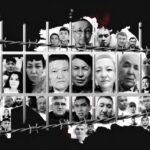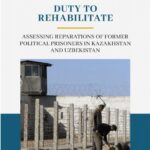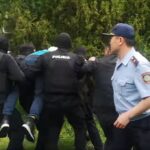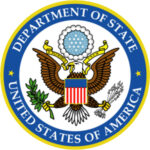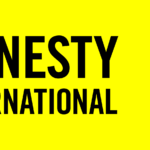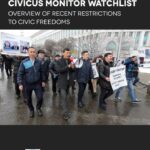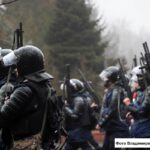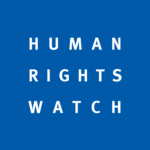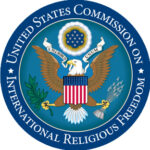(2022/2505(RSP))
The European Parliament,
– having regard to its resolution of 11 February 2021 on the human rights situation in Kazakhstan and its previous resolutions on Kazakhstan of 14 March 2019, 18 April 2013, 15 March 2012 and 17 September 2009,
– having regard to the Enhanced Partnership and Cooperation Agreement (EPCA) between the European Union and its Member States, of the one part, and the Republic of Kazakhstan, of the other part,
– having regard to the 18th EU – Kazakhstan Parliamentary Cooperation Committee (PCC) meeting on 11 October 2021, to the 17th meeting of the EU-Kazakhstan Cooperation Council of 20 January 2020, to the 12th EU-Kazakhstan Human Rights Dialogue meeting held on 26 and 27 November 2020, and to the 18th meeting of the EU-Kazakhstan Cooperation Committee of 25 September 2020,
– having regard to the Council conclusions of 17 June 2019 on the new EU strategy on Central Asia,
– having regard to the declaration by the EU High Representative of 8 January 2022 and the statement by the EEAS spokesperson of 5 January 2022 on the latest developments,
– having regard to the statement of the OSCE Chairman-in-office of 5 January 2022 and the OSCE Media Freedom Representative of 12 January 2022,
– having regard to the statement of the UN High Commissioner for Human Rights of 6 January 2022,
– having regard to the Universal Declaration of Human Rights, the International Covenant on Civil and Political Rights, and the UN Convention against Torture,
– having regard to the UN Human Rights Council Universal Periodic Review of Kazakhstan of 12 March 2020,
– having regard to Rule 144 of its Rules of Procedure;
– whereas on 2 January 2022 peaceful protests started in the Western Kazakh towns of Zhanaozen and Aktau over the spike in price of liquefied petroleum gas; whereas protests rapidly spread to over 60 cities and localities driven by the desire for a genuine political change and reflecting nationwide democratic aspirations, including fair elections, direct elections of regional leaders and effective measures to tackle the widespread corruption; whereas Kazakhstan has seen its largest protest movement since independence;
– whereas at least 206 cases of political persecution took place on 3 and 4 January 2022 to prevent people from participation in the peaceful demonstrations despite the authorities’ claims of respect of the rights to peaceful assembly; whereas these demonstrations have resulted in a bloody crackdown on protesters with Kazakhstani security forces shooting live ammunition at unarmed people in the streets, using teargas and light grenades in Almaty and a water cannon in Aktobe;
whereas as the protests developed, highly organised and unknown groups in face masks that did not appear to have been part of the original and peaceful demonstrations intentionally started violent actions, attacked police officers, looted shops, burnt cars and administrative buildings in Almaty, including the city hall and the international airport; whereas it is widely known that a similar plot took place in 2011 in the city of Zhanaozen when a group of highly organised people resorted to violence that was later used by the authorities to justify a violent crackdown on peaceful protesters with the use of lethal weapons;
– whereas President Tokayev gave the order to “shoot-to-kill without warning” which goes against international human rights commitments of Kazakhstan; whereas as of 11 January 2022, it was reported that 400 new criminal cases have been opened, more than 10,000 people have been arrested, over a thousand injured and at least 164 people died, including children and people who did not participate in protests; whereas real figures are probably higher and difficult to verify due to unreliable official information as well as disruptions of the internet and mobile phone services; whereas activists Nuraliya Aitkulova, Aitbay Aliyev and at least 12 others were reportedly shot dead by law enforcement officials during protests; whereas peaceful civilians Nurbolat Seitkulov, Altynai Yetayeva and their 15-years-old daughter were shot dead by the military forces in Taldykorgan on 8 January 2022;
– whereas there is no information about the whereabouts and state of health of most of those arrested, whether they are treated humanely and have access to lawyers and medical aid; whereas human rights defender Daryn Khassenov was tortured and arbitrarily arrested; whereas the authorities detained a well-known musician from Kyrgyzstan Vikram Ruzakhunov and showed him on national TV covered in bruises and giving false confession that he came to participate in the protest to support their claim about “international terrorists”; whereas it is being reported that detainees, even those who did not participate in the protests like former political prisoner Aset Abishev, were tortured by law enforcement officials;
– whereas despite declarations by the Ministry of Interior of Kazakhstan to the Director of the OSCE ODIHR to improve conditions in detention facilities and respect human rights, no tangible results have been achieved; whereas despite a memorandum signed by the penitentiary system of Kazakhstan and human rights defender Elena Semenova, torture and ill-treatment in detention facilities remain a systematic issue;
– whereas on 7 January 2022, the Prosecutor General announced it had opened pretrial investigations into “terrorism” and “organizing and participating in mass riots,” with punishments for these crimes ranging from eight years in prison to life and deprivation of citizenship; whereas President Kassym-Jomart Tokayev suggested in his speech of 7 January 2022 that responsibility for the latest events in the country rests not only with “destructive forces”, but also with “activists” and “human rights defenders” who has been labelled as “international terrorists” and were either arrested in politically motivated criminal and administrative cases or went missing; whereas these claims have not been supported by any evidence; whereas participants of peaceful protests like Aigul Akberdiyeva received threats;
– whereas in an attempt to calm the unrest, President Kassym-Jomart Tokayev ordered a six-month price cap on fuel, dismissed the Government and presented the parliament with a new Cabinet; whereas Alikhan Smailov has been appointed Prime Minister and voted in by the lower house of parliament;
– whereas President Kassym-Jomart Tokayev declared a nationwide state of emergency until 19 January 2022, including curfews, restrictions on movements and a ban on mass gatherings; whereas internet services and mobile connection have been regularly shut down since 4 January 2022 creating an information vacuum, preventing objective coverage by the media and monitoring by human rights defenders, and silencing the voice of peaceful demonstrators; whereas those disruptions are also putting the work of emergency health services at risk during the COVID-19 pandemic;
– whereas President Kassym-Jomart Tokayev declared that 20,000 “foreign-trained terrorists” were behind the protests as part of a long-planned plot to overthrow the Kazakhstani state; whereas the President subsequently ordered a nationwide security operation and called for support from the Collective Security Treaty Organization (CSTO); whereas CSTO began deploying about 2,500 soldiers most of which from Russia and, to a lesser extent, Armenia, Belarus, Kyrgyzstan and Tajikistan, in the country on 6 January 2022 to guard key infrastructure facilities; whereas the UN raised concern over the use of blue helmets by Kazakhstani military; whereas this has serious short-term and long-term consequences that undermines Kazakhstan’s sovereignty and independence;
– whereas national and international journalists and offices of media outlets have been criticized and come under attack by the Kazakhstani Government and state forces, including foreign correspondents being denied entry to the country; whereas a journalist of “TV rain” Vasilyi Polonskyi and a photographer Vasilyi Krestiyaninov got under fire by law enforcement officials without identification while doing their job near the morgue in Almaty; whereas a number of journalists were detained or harassed by law enforcement officials for their coverage of protests such as Saniya Toiken, Makhambet Abzhan, Lukpan Akhmediyarov, Kassym Amanzhol, Darkhan Omirbek and others;
– whereas authorities in Kazakhstan have long restricted fundamental rights and rejected calls for genuine reforms such as lifting restrictions on peaceful protest and free speech and bans on opposition groups, ending politically motivated prosecutions of Government critics as well as eradicating social injustice, social stratification and polarization; whereas Kazakhstan’s parliamentary elections of 10 January 2021 did not allow any opposition group to enter the Kazakhstani parliament and long-standing recommendations from the OSCE/ODIHR on several issues remain unaddressed;
– whereas since the latest EP resolution, there has not been any tangible improvements despite repeated promises to implement recommendations of the European Parliament, the USA, the UN, the OSCE with regard to fundamental rights and freedoms; whereas the human rights situation has been deteriorating with mass repressions, tortures, internet shutdowns, shooting of peaceful people;
– whereas Kazakhstani authorities politically persecute their opponents abroad; whereas coordinators of “Democratic Choice of Kazakhstan” opposition movement Zamanbek Tleuliyev and Yeldos Nasipbekov, who are based in Kyiv, were targeted by officers of Ukrainian Security Service on 6 January 2022 and threatened with deportation for their opposition activities; whereas the leader of the opposition movement “Democratic Choice of Kazakhstan” Mukhtar Ablyazov has been under illegal surveillance and politically persecuted by the Kazakhstani authorities in France, and his former colleague Tatyana Paraskevich was politically persecuted by Ukraine and Russia at the request of Kazakhstani authorities; whereas Kazakh human rights lawyer and political refugee in Belgium Bota Jardemalie was targeted by former Stasi agents and a Russian national, who acted as a criminal association, but were arrested and convicted to prison term;
– whereas there has not been an independent, transparent and thorough investigation into the political killings of Dulat Agadil, Zhanbolat Agadil, Amanbike Khairolla, Serik Orazov, Garifulla Embergenov, Galymzhan Kenzhebayev; whereas those responsible for their deaths have not been brought to justice; whereas the EU Special Representative for Human Rights was not shown the cells in the pre-trial detention facility where political prisoners were killed or held; whereas former political prisoner Aron Atabek died soon after his release after serving almost 15 years in prison after having gone through tortures and ill-treatment;
– whereas, in retaliation for human rights activities, the authorities continue to politically persecute human rights defenders of the “ActivistsNotExtremists” monitoring coalition, including Anna Shukeyeva, Saule Mukhambetova, Bibigul Imangaliyeva, Daniyar Khassenov, Altynai Tuksikova, Dana Zhanay, Alma Nurusheva, Zukhra Nariman, Ulbolsyn Turdiyeva, Roza Musayeva, Sholpan Dzhanzakova and Barlyk Mendygaziyev; whereas relatives and colleagues of human rights defender Barlyk Mendygaziyev – Bekizhan Mendygaziyev, Nataliya Dauletiyarova, Baurzhan Jussupov, Rinat Batkayev – are in detention for his human rights and philanthropic activities;
whereas human rights defender Raigul Sadyrbayeva, who is in poor health condition, has been placed in pre-trial detention during investigation of a politically motivated criminal case for monitoring protests in Semey and is facing a long-term imprisonment; whereas human rights defender Aliya Isenova was shot in her arm by law enforcement officials while monitoring a protest in Semey and is now reportedly facing a long-term imprisonment in a politically motivated criminal case;
– whereas on 3 September 2021 Kazakhstan has signed a memorandum with Russian state controlled group of companies SBER; whereas the memorandum implies that SBER will develop, implement and operate the platform for all Kazakhstani Government controlled data bases; whereas the memorandum was signed without public debate and open tender; whereas this can undermine Kazakhstan’s digital sovereignty;
– whereas the authorities regularly attempt to hack social media accounts of civil activists, human rights defenders and opposition; whereas Kazakhstan tries to censor opposition and human rights content on social media; whereas Kazakhstan forced Meta to give access to their reporting system;
– whereas the majority of requests by the Government to delete content on Youtube was opposition in nature; whereas the Ministry of Information and Social Development requested from Google to block the website on Google platform that promoted voting for alternative candidates and explained how to report election fraud; whereas the lawyers are at risk of being obliged not to defend publicly their clients;
– whereas people protesting in front of the Chinese Embassy and the General Consulate in Kazakhstan seeking the truth and demanding to release their relatives, who have been jailed in Chinese concentration camps, are persecuted, detained and fined;
Recalls the Government of Kazakhstan to comply in accordance with its international obligations and to respect human rights and fundamental freedoms as enshrined in Articles 1, 4, 5 and 235 of the Enhanced Partnership and Cooperation Agreement (EPCA); reiterates to the authorities of Kazakhstan to address the recommendations of the ODIHR Limited Election Observation Mission (LEOM), in particular including those concerning constitutionally guaranteed fundamental freedoms, civil society participation, political pluralism, the impartiality of election administration;
Urges the Kazakhstani authorities to immediately halt all forms of violence against peaceful protesters, civil society activists, human rights defenders, journalists, bloggers and other media workers; deplores the decision of President Kassym-Jomart Tokayev to authorize law enforcement officials to “shoot to kill without giving any warning” and demands to immediately annul it as it violates Kazakhstan’s international legal obligations to respect and protect the right to life;
Reminds that actions by all security forces, including foreign forces, must be subject to strict requirements of necessity and proportionality, and that deadly force may only be used as a last resort against specific individuals to address an imminent threat of death or serious injury; highlights that findings of domestic investigation into circumstances of the bloodshed cannot serve as a credible and reliable source of information; in light of this, urges relevant and independent authorities to conduct a transparent, immediate and effective investigation into any allegations of abuse and unlawful killings by law enforcement authorities and military, including the lethal use of force by the security forces and hold those responsible for violations accountable;
In this regard, advises, in consultation with partners, the OSCE and the UN, and upon approval of Kazakhstan, sending an international fact-finding mission to investigate all the circumstances of the events that have been happening following the start of peaceful protests in Kazakhstan on 2 January 2022;
Highlights that the events of early January in Kazakhstan are a reflection and a direct consequence of unresolved social, economic and political problems and human rights issues that have been ignored by the Kazakhstani authorities for too many years;
Calls on the Kazakhstani Government to release all persons arbitrarily arrested for reasons other than direct engagement in violence and drop any arbitrary “terrorism” charges against them; calls on the authorities to make publicly available full information of protesters who have been injured, missing and killed, and ensure independent, transparent, prompt and effective investigation into these cases, with a view to holding any official responsible for the excessive use of force accountable; recalls similar events in the city of Zhanaozen in 2011, which still raise questions and criticism towards the role of the authorities and warns that any attempts to disguise the investigation and conceal the results of investigative actions will cause public distrust and provoke further conflict between society and the state;
Calls on the authorities to also provide information on all detained persons, including their location, and ensure that they have prompt access to legal assistance and that their right to freedom from torture and ill-treatment, due process and fair trials are respected; asks to ensure that civil society representatives are able to monitor the situation without hindrance and allow representatives from the National Preventative Mechanism immediate access to all detained protesters; notes that transparency of procedural actions will increase public confidence in the authorities;
Calls the Kazakhstani Government to respect the right to freedom of information by refraining from any further wide-scale internet shutdowns and ensuring that any restrictions on internet access imposed meet the strict requirements for permissible limitations set out under international human rights law;
Strongly condemns the obstruction of the work of journalists, bloggers and other media workers, including the numerous arbitrary arrests and acts of torture; asks to immediately allow foreign and independent media coverage and calls for safe working conditions for journalists and other media workers; urges the authorities to respect the right to freedom of information and unhindered access to different means of communication, including the internet;
Is extremely concerned about reports of attempts to associate peaceful activists and foreigners, including migrant workers from neighbouring countries, with terrorism; condemns any attempt to discredit, criminalize and marginalize the work of peaceful civil society activists, who have been demanding economic and political reforms for many years; strongly encourages the Kazakhstani authorities to invite independent representatives of civil society, the media, activists and not only those affiliated with the Government, to resolve urgent issues;
Asks the authorities to respect the right of residents to peaceful assembly, freedom of expression and freedom of association and ensure that any restrictions imposed on these rights meet the requirements of international human rights law, including by distinguishing between peaceful and non-peaceful protest participants;
Urges the authorities of Kazakhstan to immediately release and fully rehabilitate all political prisoners, including Mendygaziyev Bekizhan, Amirov Erulan, Chuprina Igor, Ginatullin Ruslan, Yelshibayev Yerzhan, Kusmankyzy Saltanat, Jussupov Baurzhan, Dauletiyarova Nataliya, Batkayev Rinat, Yeskhozin Yerbol, Kayyrbek Askar, Akhmetov Ulasbek, Zheksebayev Askhat, Klyshev Kairat, Rakhimzhanov Noyan, Begimbetov Abai and Raigul Sadyrbayeva; asks the authorities to lift the measures of pre-trial detention and house arrest and the restrictions of liberty imposed on civil society activists;
Recalls on the Government of Kazakhstan to drop politically motivated charges and stop all forms of arbitrary detention, reprisals and persecution against human rights activists, peaceful protesters, religious organisations, civil society organisations, trade unions, journalists and political opposition movements, and to allow people to freely express their political, religious and other views;
Reminds Kazakhstan of its obligations under the Enhanced Partnership and Cooperation Agreement (EPCA) and urges restraint and a recommitment to human rights and the rule of law; calls on Kazakhstan to implement reforms decreasing economic inequality, eradicating social injustice, developing parliamentarism and a multi-party system, and expanding civic participation which require long-overdue reforms of the election system, genuine changes within the judiciary, independence of civil society actors and the mass media; calls on the Government to amend the new law on peaceful assembly to ensure that this freedom is guaranteed;
Recalls that human rights should be at the forefront of the EU’s engagement with Central Asia; stresses that deeper political and economic relations with the EU, as envisaged by the EPCA, must be based on shared values and correspond to active and concrete engagement by Kazakhstan in democratic reforms, stemming from its international obligations and commitments. In light of this, calls on the Commission and the High Representative of the Union for Foreign Affairs and Security Policy (VP/HR) to carry out a comprehensive review of the EPCA in light of the recent developments and the outcome of the trade policy review;
Calls on the Vice-President of the Commission / High Representative of the Union for Foreign Affairs and Security Policy (VP/HR) and the EU Member States to consider imposing targeted sanctions on Kazakhstan’s first President Nursultan Nazarbayev, first deputy head of the National Security Committee Samat Abish, Minister of Interior Yerlan Turgumbayev, General Prosecutor Gizat Nurdauletov, Minister of Defence Murat Bektanov, judge Ruslan Mazhitov who are responsible for systemic violations of human rights in Kazakhstan;
Calls on the EU Delegation to Kazakhstan to closely monitor the situation, visit and provide support to detained protesters and political prisoners, actively engage with local members of civil society by organising regular meetings without discrimination and take a role in facilitating a dialogue between the Government and the civil society; in addition, urges the EU Delegation to Kazakhstan to actively monitor and quickly react to ongoing human rights violations and take a public stance towards the violations by providing assistance to victims of political prosecution and imprisoned activists as well as attending trials of Government critics and human rights defenders;
Calls on the EU Delegation and EU Member States embassies in Kazakhstan to coordinate to act swiftly to ensure the issuance of visas for human rights defenders at risk in need of temporary relocation outside of Kazakhstan;
Calls on the EEAS and the EU Member States to initiate the UN and OSCE international fact-finding mission to Kazakhstan to independently, comprehensively and transparently investigate events in Kazakhstan;
Calls on the European institutions and agencies, including the EEAS, the European Bank for Reconstruction and Development and the World Bank, to halt financing programmes in Kazakhstan until the Government takes substantial and tangible efforts to improve its human rights record, including implementing all recommendations of the European Parliament, the UN and the OSCE;
Instructs its President to forward this resolution to the Council, the Commission, the Vice President of the Commission / High Representative of the Union for Foreign Affairs and Security Policy, the EU Special Representative for Central Asia, the Governments and parliaments of the Member States, and the President, Government and Parliament of Kazakhstan.
Last updated: 18 January 2022 Legal notice – Privacy policy
https://www.europarl.europa.eu/doceo/document/B-9-2022-0072_EN.html



